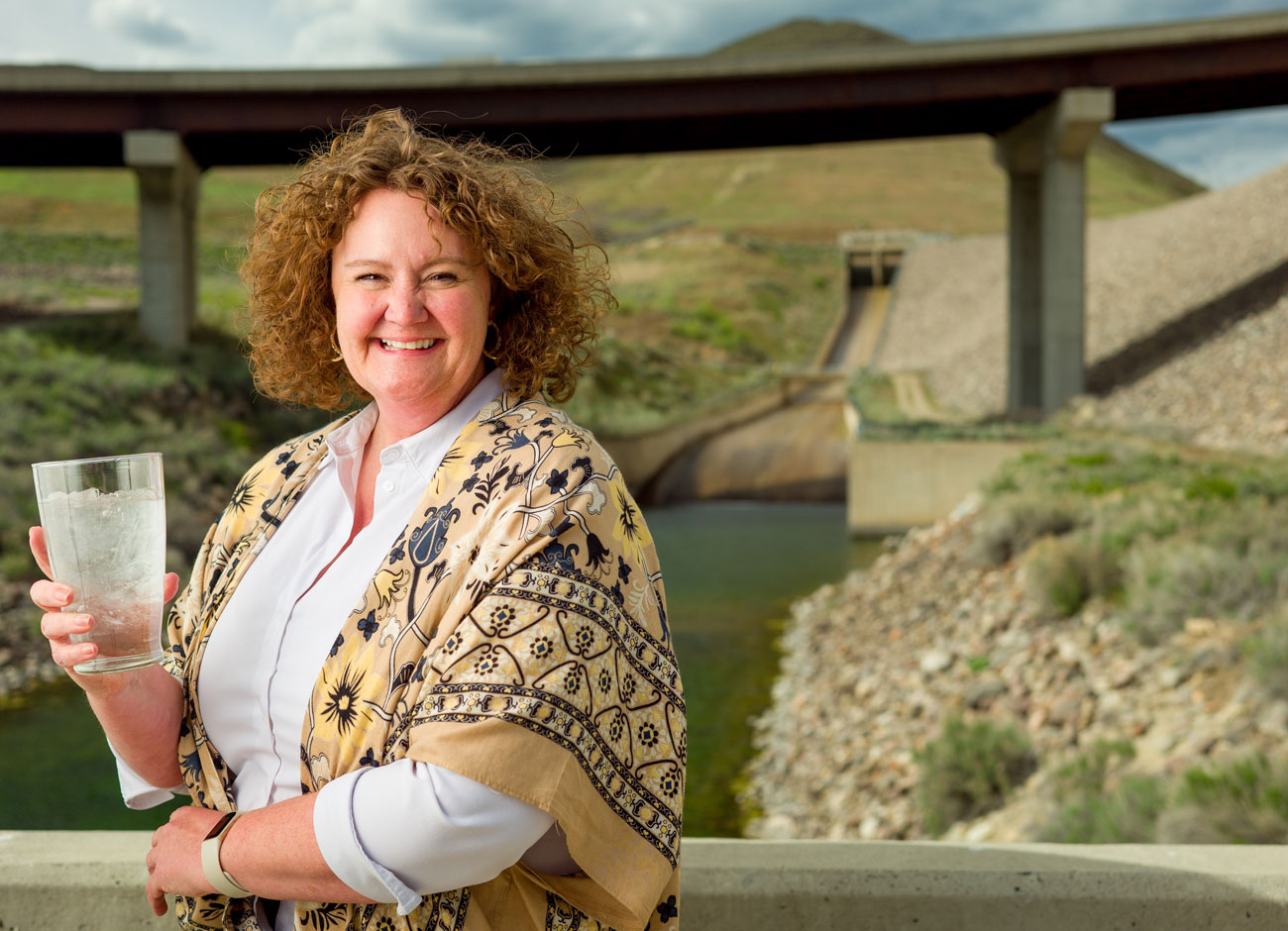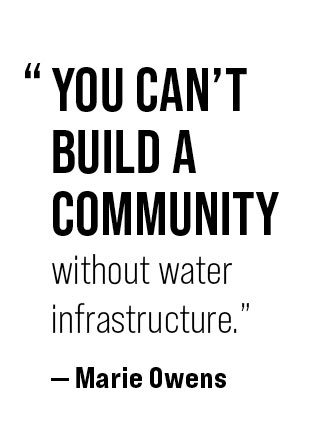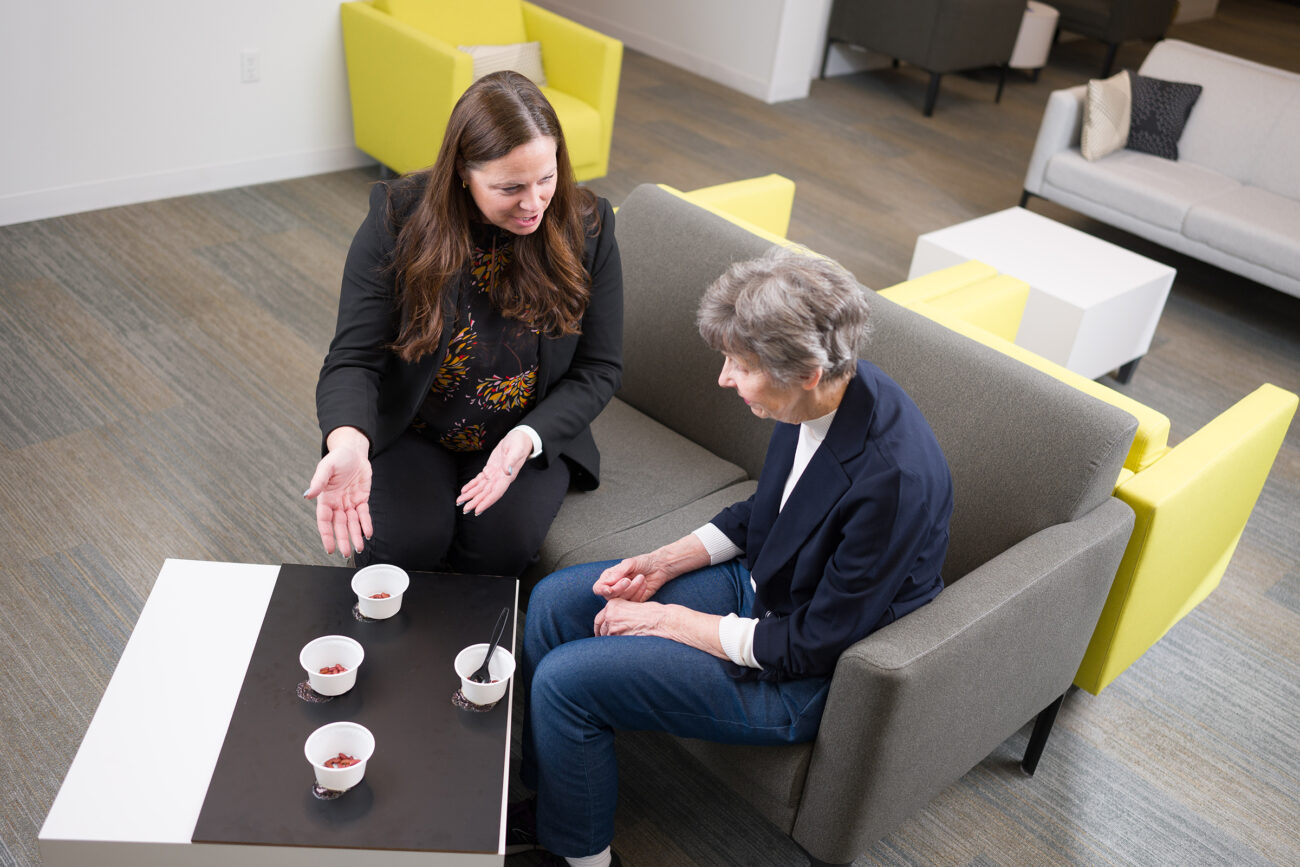A Purpose-Driven Career in Water Quality

“Drink more water” is the phrase Marie Owens’s children say they’ll carve into her headstone.
And while Owens admits she gives this advice often, for her, the words are more than just a reminder to hydrate. For over 20 years, Owens, ‘95, has worked to ensure all Utahns have access to safe drinking water. Though her career in drinking water began with an internship at a water conservancy in the Salt Lake Valley, her love of the liquid stems from her childhood on a dry farm in Northern Utah where her father grew thousands of acres of wheat using only rainwater.
“I grew up always hearing about the rain and the soil moisture,” Owens says. “That was all-consuming.”
When Owens began attending Utah State University she originally planned to major in electrical engineering; however, she found the study of tiny electrons too abstract. This led her to switch to the recently created civil and environmental engineering program. At the time, USU’s program was one of only a few in the nation.
“Once I made that switch, I loved the program,” she says. “It was just technical enough to challenge me, but I loved what we were studying.”

At USU, Owens took a rules and regulations class. While many of her peers disliked the course because it wasn’t related to math or formulas, she didn’t mind it and realized if she focused her career on this less-popular niche, she would always have a variety of job opportunities.
Upon graduation, Owens’s first full-time job was with the Metropolitan Water District of Salt Lake and Sandy in what was supposed to be a three-year position but turned into 10 years. Afterwards, Owens spent another decade as the water quality manager at the Jordan Valley Water Conservancy District before being tapped in 2017 to direct the Division of Drinking Water at the Utah Department of Environmental Quality.
During her five years in this position, Owens served as Utah’s compliance officer for the Safe Drinking Water Act, meaning she was in charge of ensuring that all 1,200 public water systems in the state had routine water quality monitoring, infrastructure built according to standards, treatment processes that were sufficient and appropriately monitored, adequately trained operators, and water systems that protected their sources from new contamination. She also handled any drinking water event or emergency that arose.
“Drinking water has always provided a purpose for my career,” Owens says. “I could always say in my heart, that I was doing something really important. I am protecting every infant whose mom is making a bottle for them out of tap water in the morning. I am protecting every individual who is struggling with their health. I am creating a standard of life for people in ways that they just don’t even know. You can’t build a community without water infrastructure.”
Owens retired from public service last year and took a job in the private sector working as a senior project manager for Advanced Engineering and Environmental Service. Currently, she is helping Washington County develop a drought contingency plan. The work couldn’t be timelier.





